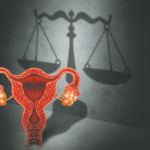Counseling mothers on their child’s prospects once cardiac neonatal lupus is found is a key part of a clinician’s management of the illness.
“So far,” Dr. Buyon said, “there’s never been reversibility of third-degree block” if 24 hours have elapsed since the situation was discovered.
For second-degree block, she said, “it’s still a little bit controversial, but the key point is that in 35% of cases treated, you could regress to normal sinus rhythm. So there is some opportunity.”
If no treatment is offered, there may be a far lower chance of improvement.
Even in cases in which second-degree block, or even first-degree block has come to light in utero, but in which the antibodies have left the infant’s circulation months after birth, the heart block can still progress to third degree, requiring a pacemaker, Dr. Buyon noted. So the process that began during fetal life can extend “independent of the initial insult of the antibodies.”
Potential Treatment
When antibodies are detected, some studies, mostly in small samples, have given some indication that hydroxychloroquine could be protective.2 Adding up the evidence in these limited studies does suggest a significant decrease in the risk of CHB in pregnancies during which the mother is treated with hydroxychloroquine, Dr. Buyon said.
Dr. Buyon is now conducting a nationwide study to evaluate the efficacy of hydroxychloroquine to reduce the recurrence rate of CHB by at least half.
For now, she said, “I’m not quite ready to make a recommendation.”
Thomas R. Collins is a freelance writer living in South Florida.
References
- Neiman AR, Lee LA, Weston WL, et al. Cutaneous manifestations of neonatal lupus without heart block: Characteristics of mothers and children enrolled in a national registry. J Pediatr. 2000 Nov;137(5):674–680.
- Martinez-Sanchez N, Perez-Pinto S, Robles-Marhuenda A, et al. Obstetric and perinatal outcome in anti-Ro/SSA-positive pregnant women: A prospective cohort study. Immunol Res. 2017 Apr;65(2):487–494.

